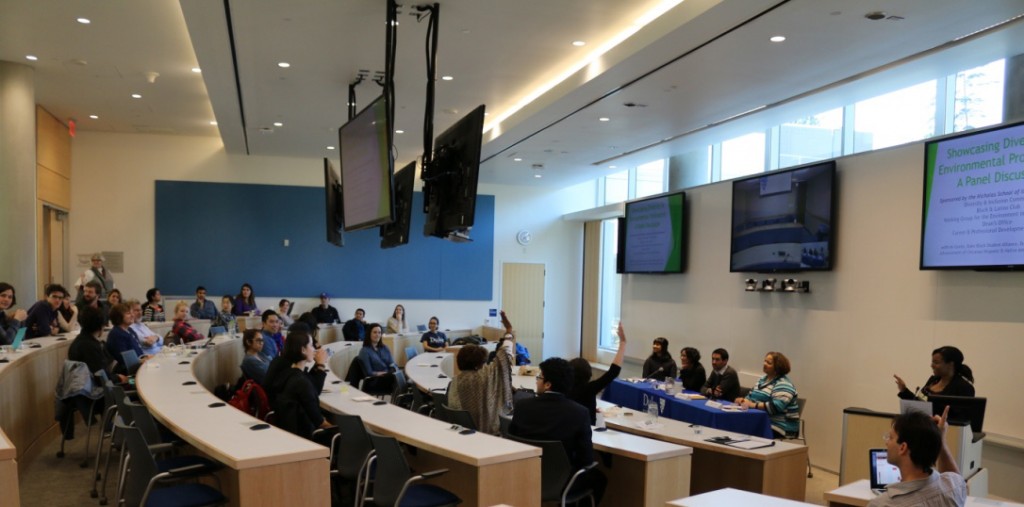At the Nicholas School, you cannot finish a single credit without being harangued on the fundamental necessity of biodiversity. Whether in watershed services or coral reef communities or multi-crop agriculture, we discuss at length the many ways in which diversity makes our ecosystems stronger and more resilient.

It is not too much of a leap to bring our lessons learned about biodiversity and apply them to racial and cultural diversity in our professional communities. Sadly, we very rarely ruminate on the same strengthening effect that diversity has on our anthro-communities as species diversity has on our ecological communities. It is really never discussed.
Last week I was pleased to attend an important panel discussion on exactly this topic: Showcasing Diversity in Environmental Professions. On the panel sat Neasha Graves (UNC Institute for the Environment), Jorge Montezuma (NC Department of Environmental Quality) and Jazmin Varela (The Conservation Fund) who kindly provided their personal and professional perspective on diversity to some 50 students, faculty, and staff in Field Auditorium at the Nicholas School’s Environment Hall.
The panelists discussed how pride is a key ingredient in overcoming diversity challenges in a professional context, or really any context.
Graves shared that she had already graduated college before she felt comfortable telling people that her father was a farmer in the small mostly-black town of Moncure, NC. But she remembers witnessing packed meetings about the severe community-health impacts from pesticide that blanketed the town. This experience informed her commitment to environmental action in a way that now makes her proud and not hesitant.
This plea for pride was echoed by Varela whose closing remarks urged everyone in attendance not to undervalue themselves. From salary negotiations to professional leadership, the key to getting the respect you deserve is to demand it and this is doubly true for minorities or underserved communities. Truth.
The issue of environmental justice was also discussed by multiple panelists. Varela pointed out that many organizations get confused between diversity issues and environmental justice issues. She urged all people to adopt greater environmental protection for all people regardless of races. Even environmental justice focused firms need to actively confronting diversity issues.
It was an uplifting event to listen to three powerful and eloquent leaders in this field. It was certainly empowering for all and inspired people to be proud of their individual perspectives rather than avoiding confrontation.
Thank you to Diversity & Inclusion Committee, the Dean’s Office, Black & Latino Club, Working Group for the Environment in Latin America, and the Career & Professional Development Center for hosting an engaging, welcoming and energetic event.

